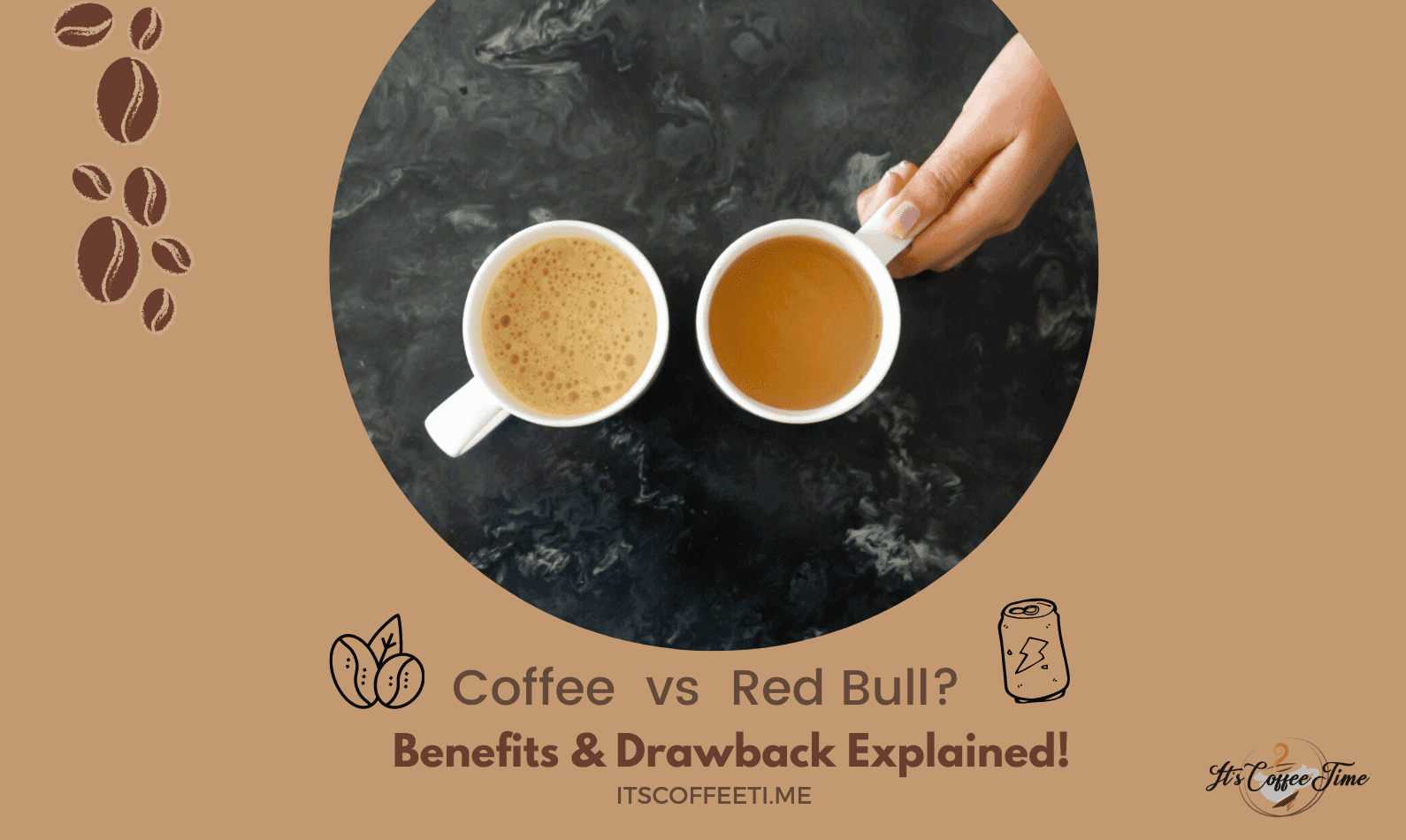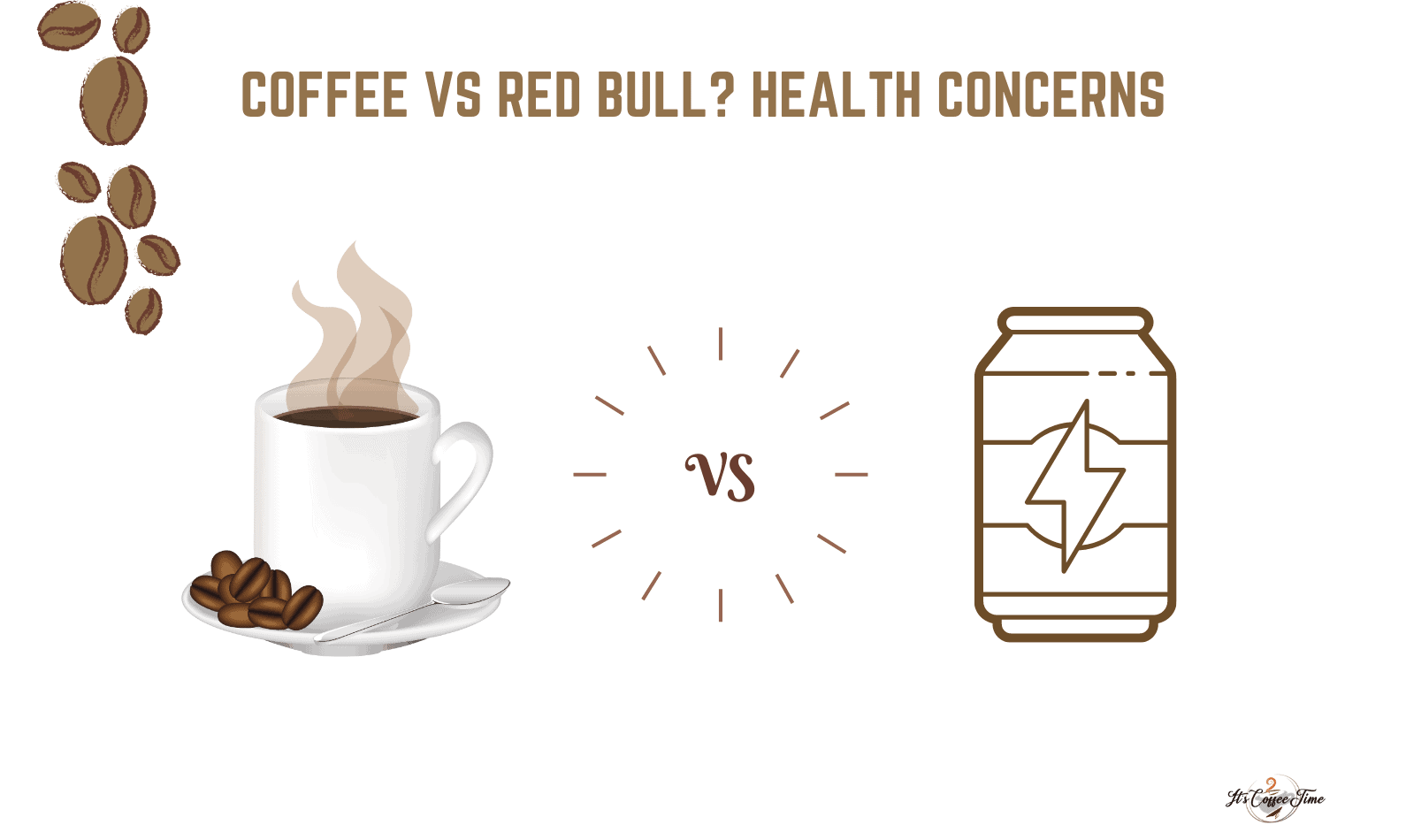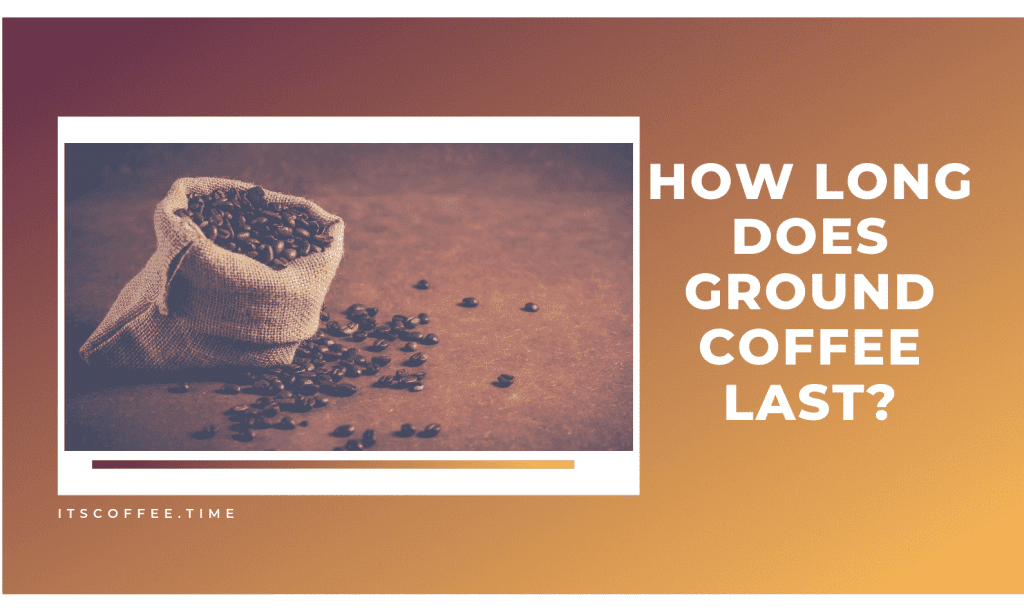Coffee vs. Red Bull: A Fierce Fight: One of the biggest reasons people get into the morning for a cup of coffee is for the energy boost. Coffee gives drinkers a significant boost to start (or continue) their day with, thanks to caffeine. To obtain the caffeinated rush, however, coffee isn’t the only drink people aim for. Instead, many opt for energy drinks. What’s the difference, then? Apart from the apparent variations in taste, there are plenty of other distinctions that should be noticed between these two choices. Read on for the complete breakdown of the Red Bull vs. coffee showdown, from the content of caffeine and health factors to other alternatives to both.
Coffee vs Red Bull: Full Comparison
Overview of Red Bull
Red Bull is an energy drink commonly distributed in the Western Market, as you probably already know. If you remember it for the slogan “Red Bull gives you wings,” or the classic blue and silver can, chances are you know what it is. The figures indicate the popularity of the drink. Red Bull has the largest market share of any energy drink with 6.8 billion cans sold in 2018 – not just in the US, but worldwide. Red Bull GmbH, which is an Austrian company established in 1987, sells this drink. Red Bull is popular with those looking for a fast pick-me-up and those looking for a serious workout booster, revered primarily for its convenience over his taste.
Overview of Coffee
While Red Bull is extremely popular, it hardly has the edge on US coffee consumption. Americans consume about 146 billion 9-ounce cups of coffee annually and are the world’s leading coffee consumers. As a result, coffee alone accounts for 75 percent of US caffeine consumed. Coffee is not only used as an energy booster; it is also a part of the history of many nations. To some, starting the day with anything other than a hot cup of coffee is unfathomable. And we’re a part of that demographic, honestly. To clarify, when addressing coffee for this post, we’re thinking about your standard drip coffee, not the espresso or coffee brewed by another process.
Caffeine Content
When it comes to coffee, there is a great deal of difference in caffeine, depending on the type of grounds you use to brew. While not everybody is drinking DeathWish, a ton of watered-down weak sauce is also not guzzling to the general public. Most people land right in the center of the two extremes. Thus the average falls from 80 to 200 milligrams of caffeine per cup.
Read more about Best BPA-Free Coffee Makers 2022
Red Bull, on the other hand, is relatively easy to pin down. One can have about 80 mg of caffeine in it, about even with a relatively weak coffee.
Use of Other Stimulants
As a coffee lover, you might wonder why people would reach for Red Bull if the coffee has a higher caffeine content in general. The secret is that Red Bull does have other stimulants to complement the caffeine and make you go.
Taurine
As with caffeine, taurine is a stimulant that occurs naturally. Coffee does not, however, contain any particular organic compound. For things like cardiovascular functions, calcium signaling, anti-oxidation, and more, your body already has and uses Taurine. Besides, although the effects of adding caffeine into our body are widely known, Taurine’s results have remained largely unstudied. Thus the exact long-term effects are unknown, although it is suspected of helping heart health and promoting short-term relaxation. Plus, since Red Bull has relatively little to start with, it is unlikely to be harmful unless one consumes it excessively.
Sugar
While many people choose to add sugar to their coffee, there is no sugar in an undiluted cup of Joe. On the other hand, there are about 27 grams of sugar in one can of Red Bull, equivalent to about 6 teaspoons. For perspective, within a typical 2,000-calorie diet, that exceeds half the daily recommended amount. And all of that is packed into an 8.4-ounce package. The effects of sugar are probably familiar to you already. For others, only one sugar cookie is adequate to get them buzzing, and those typically contain around 9 grams of sugar. Triple that’s in Red Bull’s can, so no wonder people reach for it.
Read more about How to Fall Asleep After Drinking Coffee: Unknown Facts Revealed
Many people add a substantial amount of sugar to their coffee, though. Still, Starbucks concoctions aside, getting your cup to reach the same sugar content as a Red Bull would take a relatively excessive amount of sugar.
Coffee vs Red Bull? Health Concerns
Antioxidants
We mentioned earlier that there are some antioxidant properties in Red Bull. But coffee is composed primarily of antioxidants; as you might guess, Coffee intake, the sheer volume of coffee consumed in America, is the leading source of such antioxidants in the population. As a result, while there are not many (if any) reports venturing out on the daily long-term benefits of drinking Red Bull, there is plenty of discussion about coffee. The favorite of America. Drinking has been shown to reduce the risk of many diseases, including type 2 diabetes, Alzheimer’s disease, and more.
Calories
This is a tough one. If you compare the two undiluted compounds, Red Bull would have more calories by a long shot. Nevertheless, once you start adding milk, sugar, flavor pumps, and more, the field begins even out. Thus, if you’re concerned about your calorie intake, your best bet is to drink black coffee. Black coffee, however, doesn’t suit everybody’s tastes. So if you want to mellow out the coffee’s intensity, go for low-fat milk and less sugar. Some people even opt to add salt to reduce bitterness, which can work for you if you have low or average sodium intake.
Workout Booster
When it comes to choosing between Red Bull and coffee, one of the most significant contention points is when it comes to the gym. Red Bull and other energy drinks are often marketed explicitly to athletes because they help prevent energy crashes and supposedly increase performance. So Red Bull may be the best option if you only drink it regularly to help you get through an incredibly intense workout. If you’re just an average Joe, though, the cup o’ Joe may be a better choice. Coffee can help boost the metabolism while avoiding unnecessary intake of sugar and calories. Only make sure that your pre-workout routine always involves extra water to make sure you don’t dehydrate.
Other Options of High Caffeinated Drink
Many energy drinks certainly exist besides Red Bull. The comparison with coffee, for the most part, though, is mostly similar. They are generally high in calories and sugar and tend to have a list of additives for laundry. For example, there are some energy drinks, Rockstar 2x Energy, which does manage to exceed the average cup in caffeine content. Yet, the tale remains unchanged at the end of the day.
We can have a look at tea and espresso as far as common coffee substitutes are concerned. Separate from coffee, tea has been shown to have health benefits. Although it also contains caffeine, your body absorbs it differently and more slowly. It also encourages relaxation in general, rather than hyperactivity. On the other hand, espresso has the same benefits as coffee, in essence. In a smaller package, though, it does have more caffeine. Besides, it typically has a more complex flavor profile. So if that is what you’re in, try an espresso shot.
Conclusion
If you’re looking for which choice on the daily routine you can aim for, coffee is a simple winner. With better health benefits and a lower risk of harmful side effects, coffee is more likely to help your lifestyle in the long run than it will hurt. On the other hand, it can be perfectly okay for Red Bull and other energy drinks to consume every once to boost a workout or while on the road. We hope after reading this article on Coffee vs Red Bull, you will now be able to choose the best drink for you.




